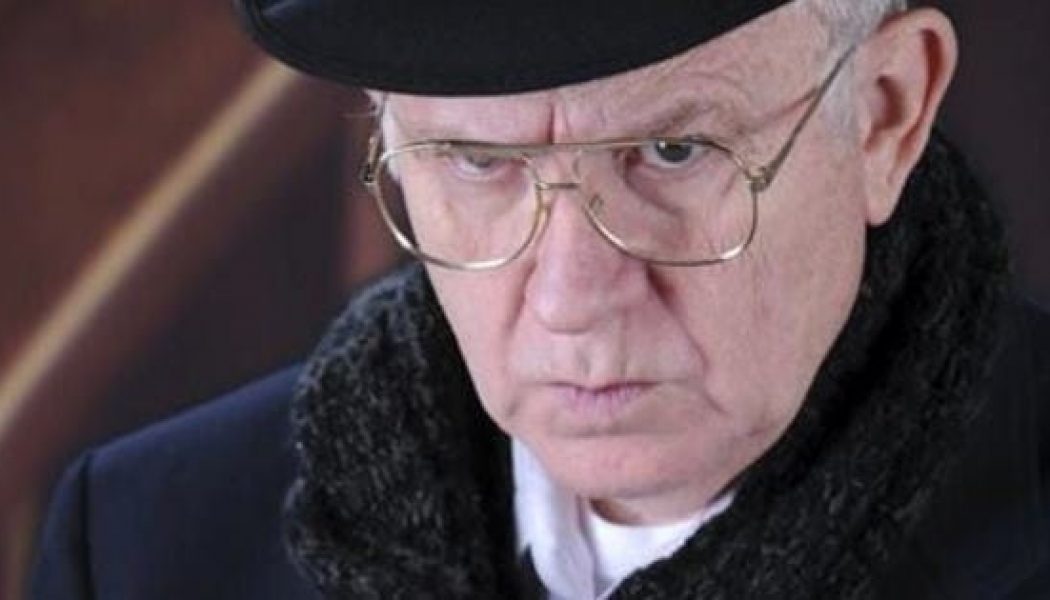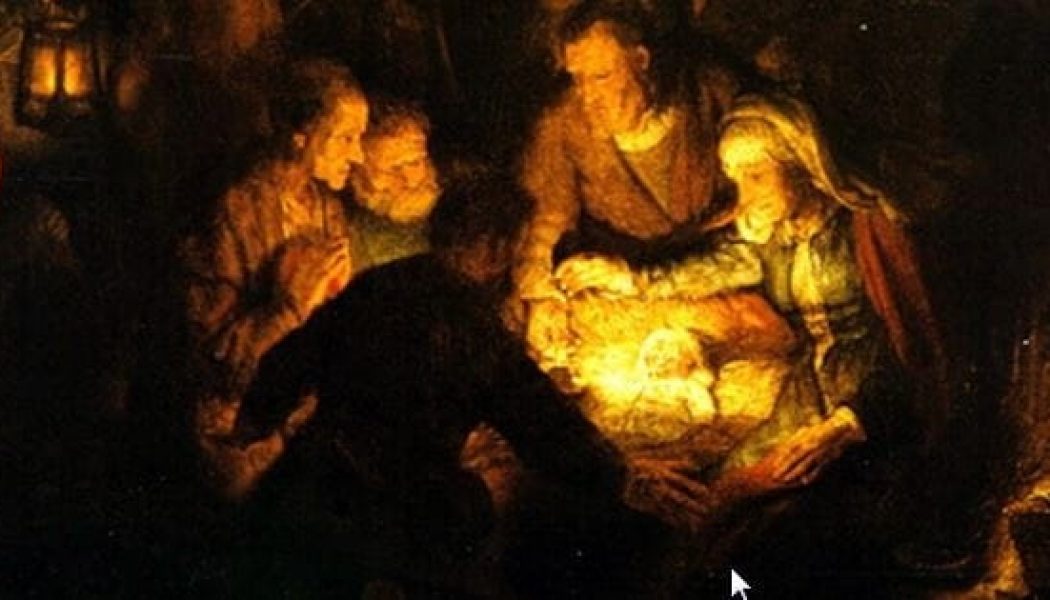Blog
How to Have Genuine Joy this Christmas
It’s that time of year again. Decorative signs, advertisements, and commercials encourage us with the familiar messages: “Just Believe” “Have Faith” “A Season of Hope” At first glance these tidings may warm our hearts as we go about our way, humming Christmas music as we shop. Yet, as I stop to reflect upon these phrases, I wonder, What exactly do they mean? Each of these statements is missing an essential element – the object of one’s belief, faith or hope. One could read these messages and easily interpret that we are to “Just believe in Santa” or “Have faith in the goodness of mankind” or this is “A season of hope” because we are looking forward to lovely times with families or gifts around the tree. Understood in this way, these messages fall flat and bring little encourage...
Why We’re Not Impressed with Gentleness (But Should Be)
Does gentleness impress you? If it doesn’t, it should. Like its cousin humility, gentleness is easily overlooked. It doesn’t draw attention to itself, because it’s too busy paying loving attention to another. What exactly is gentleness? It’s not timidity or shyness. It’s certainly not weakness. Consider the mighty gentleness of God himself: Behold, the Lord GOD comes with might, and his arm rules for him; behold, his reward is with him, and his recompense before him. He will tend his flock like a shepherd; he will gather the lambs in his arms; he will carry them in his bosom, and gently lead those that are with young. (Isa 40:10–11) What then is gentleness? Gentleness is love, guided by self-control, applying just enough strength to serve someone in a way they can handle. Love....
How Not to Be a Cranky Christian at Christmas
There are a lot of reasons to be cranky on Christmas. It can be one of the busiest times of the year, with the pressure to get the perfect gift for your loved ones, the endless travel to church and school events, and the seeming de-Christianization of Christmas by the prevailing culture. And yet none of these things should be allowed to steal our joy, especially for those of us who follow Jesus. In fact, Christmas should be the most joyous time of the year for the Christian, because it is our story the world is trying to tell. Rather than get frustrated with another “happy holidays” greeting from the checkout lady, why not allow your Christmas joy to be so contagious that they ask you why you are smiling? Rather than complain about another holiday recital at your kids’ school, why not use ...
Does “Xmas” Take Christ out of Christmas?
Alex Crain Crosswalk.com Contributor Should Christians get upset about seeing Christmas abbreviated as “Xmas?” How did that tradition even get started? Is it disrespectful? The answer to that last question is “not necessarily.” While some Christians seem unduly judgmental of others who abbreviate Christmas as “Xmas,” the practice of using an “X” to abbreviate “Christ” began hundreds of years ago. Scribes in the early church who copied the Greek New Testament regularly used the Greek letter chi (which looks the same as the English letter “X”) to represent the name of Christ. Pastor and author, R.C. Sproul has this helpful article that explains further. Additionally, this short video by Pastor Mike Fabarez details more of the technical background on the subject. The real issue here—as with e...
Celibate Gay Christians: Is That Biblical?
Michelle Boorstein has a must-read piece in The Washington Post about the celibate gay Christian movement. It features Albert Mohler, Wesley Hill, and some others from the evangelical movement. The article begins with a discussion about Eve Tushnet, a celibate Roman Catholic lesbian. Today, Tushnet is a leader in a small but growing movement of celibate gay Christians who find it easier than before to be out of the closet in their traditional churches because they’re celibate. She is busy speaking at conservative Christian conferences with other celibate Catholics and Protestants and is the most well-known of 20 bloggers who post on spiritualfriendship.org, a site for celibate gay and lesbian Christians that draws thousands of visitors each month. This is an interesting...
Gods and Kings at Christmas
I recently saw Ridley Scott’s biblical epic, Exodus: Gods and Kings at the theater. Evangelicals typically have one of two responses to movies like this. There are those who are upset at the deviations from the biblical text and there are those who are upset that people are upset about the movie. I’m typically somewhere in between. For instance, I watched the much anticipated Noah movie earlier this year and found myself in between the two warring camps. I thought Darren Aronofsky produced a cinematic masterpiece, but I didn’t understand why he so corrupted what is already a dramatic narrative. The part where Noah goes mad and tries to kill his grandson is just creepy and unnecessary. But I didn’t think this movie was an attack on the Christian faith. The Church has survived far worse bibl...
No Such Thing as Convenient Christianity…Really?
Peter Chin recently published a thought-provoking piece over at Christianity Today titled, “No Such Thing as Convenient Christianity.” His post is winsome and well-written, humorous and humble, confessional and convicting. It’s the kind of writing you’d expect from the author of Christianity Today’s most-widely read article of 2013. Yet in spite of Chin’s obvious passion and timely prophetic warnings about dangers in our midst, it seems his diagnosis and prescription miss the mark. By conflating the love of convenience with convenience itself, his article runs the risk of making God’s people feel guilty about receiving his grace. In the Beginning, Grace When God created the universe, he did so as an act of grace. Like a river that floods its banks, wave after wave of honor and love and joy...
Advent III: Rejoice! God Is With Us
Introduction The third Sunday in Advent (Advent III) shifts from a tone of expectation of Christ’s coming to one of rejoicing at the arrival of God’s kingdom with the coming of Jesus. The Scripture and Theology of the Third Week of Advent Scripture readings for Advent III reflect on the salvation and restoration Jesus brings, which is cause for rejoicing and perseverance. Old Testament Readings Old Testament readings for Advent III highlight the universal restoration Jesus accomplishes. In Isaiah 35:1, the prophet looks forward to the future promised for the people of God—a future inaugurated at the first coming of Christ and consummated at his second coming. When Jesus returns, the effects of sin’s curse will be removed: the wildernesses and dry land will bloss...
The Need for Advent
[Editor’s Note: This has been adapted from Paul Tripp’s Christmas devotional, “Advent: The Whole Story.” Download your free copy today at www.PaulTripp.com/Advent.] Could you get any more graphic, more specific, more all-inclusive words than these? “The Lord saw that the wickedness of man was great in the earth, and that every intention of the thoughts of his heart was only evil continually.” (Genesis 6:5, ESV). It’s clear from Genesis 6:5, and it’s clear if you watch the news today, that something is deeply broken with the human race. Even people who don’t believe in the Bible would agree that something is wrong and people need help. But how do we fix the problem? There are two commons lies that we all believe. The first...
7 Errors to Avoid in Following Christ
What you believe makes a big difference in your Christian life. Even if the categories of formal theology seem remote and unfamiliar, you have a theology. Everything you think about God, Jesus, law, sin, salvation, holiness, the Spirit, the church, human nature, life, death, and eternity is theological. We are all theologians. The real question is whether or not our theologies are true to Scripture. One of the most important areas of theology is sanctification: the doctrine that concerns our consecration to God, the restoration and renewal of God’s image within us, and our practical progress in holiness. I’ve seen a number of common errors that Christians make in this area. In fact, here are seven errors to avoid in following Christ. 1. Looking to your sanctificatio...
Christmas Carol for a Divided Nation
One of my U.S. history students recently asked me what my favorite Christmas song was. There are many that I love, and I told him that I couldn’t possibly choose just one, but as a historian—and a specialist on the American Civil War, particularly—I have always been deeply moved by I Heard the Bells on Christmas Day. In its original form it’s not heard too much these days, although several contemporary Christian groups (Casting Crowns for example) have performed variations on it. The carol is based on a poem written at the height of the Civil War by the renowned American poet Henry Wadsworth Longfellow. A native of Maine and long-time resident of Cambridge, Massachusetts, the fifty-six-year-old Longfellow was an American celebrity by that time, famous for works such as Th...
From Kiev to Ferguson: Stable Words in an Unstable World
Just a few hours ago I stood at the square in Kiev where one year ago over a million people gathered to protest Russia’s ruthless attempt at breaking Ukraine. The pictures, the flowers, the memory of the many dead scream in the silence. Ukrainian youth and others paid with their lives, and the pictures reveal the savagery of the oppressors. It was a biting cold sixteen degrees as I recorded a message there while passersby stopped to listen. As I now fly back, I see another scene: a burning building and the threatening destruction in Ferguson, MO, the aftermath of the tragic death of a young man there. There are huge differences between these stories but the cries are similar. Sadly, speechmakers often exploit such scenarios, provoking our baser instincts. When the jury in Misso...























